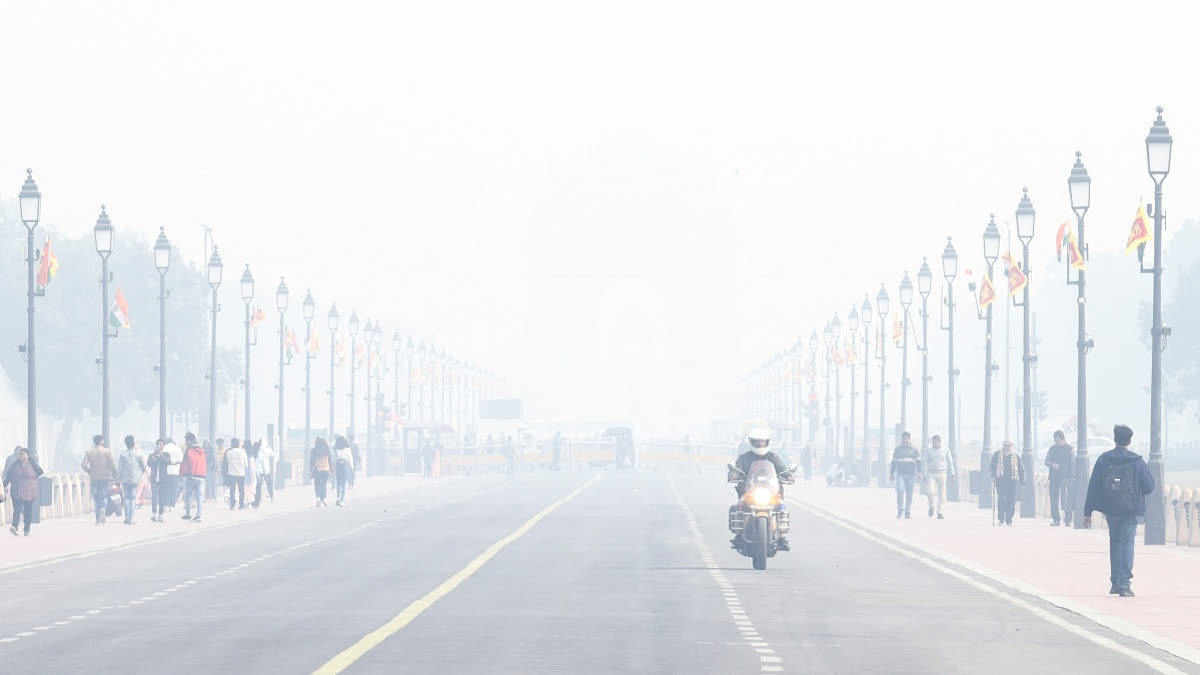New Delhi: Delhi’s air quality plummeted to the ‘severe’ category on Friday, with the city’s Air Quality Index (AQI) reaching alarming levels. At least 32 of the 35 monitoring stations recorded AQI values in the severe-plus range, with some areas peaking at 450. The primary pollutant, PM2.5, remains dangerously high, sparking serious public health concerns.
Under Stage IV of the Graded Response Action Plan (GRAP), the strictest anti-pollution measures, the city has been grappling with worsening air pollution. Despite interventions, pollution levels continue to escalate, revealing the inadequacy of temporary measures like smog towers.
Environmental expert Avinash Chanchal stressed the urgency of addressing the crisis at its root. Speaking to ETV Bharat, he said, “There is no ‘safe’ level of air pollution. Even low exposure shortens lives and impacts public health. Temporary measures won’t suffice; pollution must be tackled at the source.”
Local residents are also bearing the brunt of the city’s deteriorating air. Neha Verma, a resident of Hauz Khas, shared her frustration, “I’ve had to stop sending my children to play outside because they come back coughing. Even wearing masks doesn’t seem to help. We feel trapped in our own homes.”
Delhi’s air quality plummeted to the ‘severe’ category on Friday. (ANI) Raju Kumar, a shopkeeper, echoed similar concerns, saying, “The smog is making it hard to breathe, especially in the mornings. Business has slowed down because people prefer staying indoors. The government needs to act more decisively.”
Studies attribute Delhi’s air pollution to multiple factors, including vehicular emissions, industrial combustion, road dust, biomass burning, and the construction sector. Experts are calling for a long-term, holistic solution.
One immediate step suggested is prioritizing public transportation over private vehicles by improving accessibility, efficiency, and sustainability. The Delhi government has also taken a bold step by banning firecrackers year-round to curb pollution spikes. Enforcement teams from the Delhi Police and Revenue Department will ensure compliance, with violators facing penalties, including fines and imprisonment.
Meanwhile, the Indian Meteorological Department (IMD) has issued a yellow alert for Friday, warning of dense fog. On Thursday, Delhi’s minimum temperature dropped to 5°C, three notches below normal, worsening the air quality.
As pollution continues to impact public health and daily life, residents and experts alike are urging the government to take stronger, more comprehensive measures to combat the crisis.
